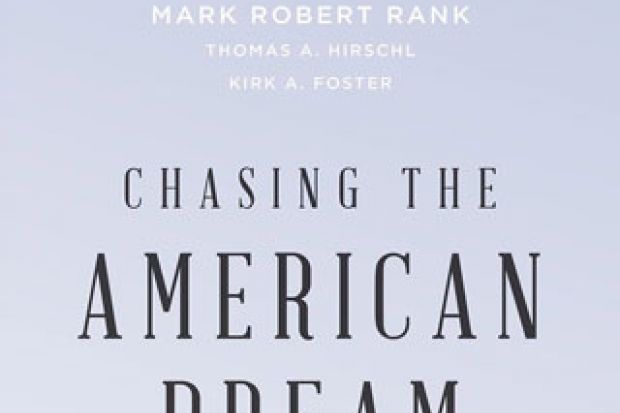Every American child knows the narrative: the pilgrim’s journey across the ocean in search of freedom, the pioneer traversing rough terrain to homestead the West, the first-generation immigrant’s rags-to-riches tale. In Chasing the American Dream, Mark Rank and co-authors Thomas Hirschl and Kirk Foster challenge those cherished notions and urge us to rethink the iconography of the American Dream and its underlying paradox: the “disconnect between rhetoric and reality”.
Wide-ranging interviews with 75 people of diverse experiences form the backbone of the book and highlight three key characteristics of the American Dream: the freedom to pursue happiness, the desire for economic security and a sense of excitement for the future. While most interviewees agreed that the US offered freedom, they testified to the “near impossibility” of economic security. More than 70 per cent of Americans experience at least one year on welfare, in poverty, or with the head of the household unemployed. Nevertheless, what sets Americans apart from their European counterparts is “unbounded hope and enthusiasm”. The voices here are buttressed with a breadth of cultural references corroborating the iconic status of the American Dream. This framing discursively builds a constituency of like minds: “Yes, I remember that” fondly melts into “Yes, the American Dream is important and should be saved from endangerment”.
In its second half, the text transitions from a book of remembrance to a wake-up call. Quantitative evidence persuasively maps out the lumps in the bed in which those dreamers sleep: a changing economic landscape riddled with low-paying or part-time jobs, unemployment, precarious high- and low-quality employment and a widening gap between the haves and have-nots. The risk of extreme poverty for those aged 35 to 55 has increased by some 70 per cent in the past 40 years. Upward mobility is still possible, but in conditions of economic insecurity, the rags-to-riches story is transitory and fluid, with children, those in ill health and the elderly trapped in “cumulative inequality”. Alongside these, the “randomness of life” casts shadows over the best-laid plans. John Steinbeck haunts this particular section as the authors struggle to acknowledge the importance of dreaming, to remind that fate can swing both ways and to issue a warning to those living through the “Great Recession” who have been left with only disappointment.
Chasing the American Dream captures the importance of the chase – of the belief in a dream that, despite its impossibility, keeps Americans hoping. The authors outline policies that could protect those vulnerable to economic whims. Importantly, they also offer a powerful commentary on the psychological role of the American Dream as a double-edged sword: giving hope despite the odds and, because of its pervasiveness, blinding people to the reality of limited possibilities. The American Dream is about being “self-made” – if you fail, it is your fault. How do we harness optimism to change the economic and structural problems? Perhaps the first step is to stop believing that all Americans can all grow up to be president. One teacher interviewed here laments the cultural obligation to teach hope, since “some of these kids have to grow up to work at McDonald’s and Wal-Mart”. Rank, Hirschl and Foster urge Americans to wake up just enough to be aware of context and structural limitations, while still retaining hope enough to work for change. It’s a laudable goal, and this book is an inspiring read.
Chasing the American Dream: Understanding What Shapes our Fortunes
By Mark Robert Rank, Thomas A. Hirschl and Kirk A. Foster
Oxford University Press, 232pp, £18.99
ISBN 9780195377910
Published 17 April 2014
Register to continue
Why register?
- Registration is free and only takes a moment
- Once registered, you can read 3 articles a month
- Sign up for our newsletter
Subscribe
Or subscribe for unlimited access to:
- Unlimited access to news, views, insights & reviews
- Digital editions
- Digital access to THE’s university and college rankings analysis
Already registered or a current subscriber? Login





